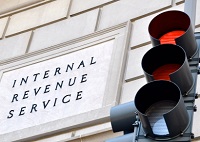The IRS has just announced that the filing fee for the 1023-EZ, a short-form application for recognition of tax-exempt 501(c)(3) status, will drop from $400 to $275 effective July 1. This is a welcome development for smaller startup nonprofits that are eligible to use the form.
We’ve blogged about the 1023-EZ before, and about the criticism it has faced since inception. For instance, many say the form makes it far too easy to obtain 501(c)(3) status, and circumvents the educational process that new nonprofits should undergo regarding what they are allowed to do as a 501(c)(3)—and what is limited or strictly off limits.
Further, a report released earlier this year by the Taxpayer Advocate service, an independent office within the IRS, harshly criticized the Form 1023-EZ as exacerbating charitable fraud and putting the IRS focus on audit rather than up-front review of exempt organizations.
Ultimately, though, the 1023-EZ is likely here to stay. But new nonprofits that are eligible to file the 1023-EZ need to carefully evaluate whether it makes sense to file a full 1023 regardless. This can be the case if an organization’s activities are less traditional, or if the organization will be relying on foundation grants that may be harder to obtain without having gone through the full 1023 process. And a nonprofit’s advisors have a duty to educate clients going the 1023-EZ route on compliance requirements and other legal issues that apply to 501(c)(3)s—because, short-form or not, these organizations will be subject to them.


